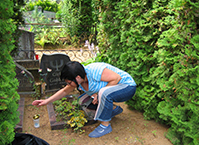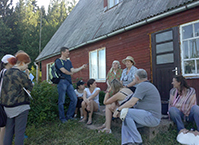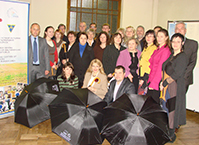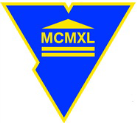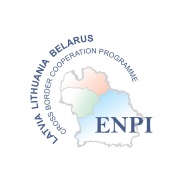About study and work in Latgale after World War II
Categories: Study and work, Antonina Ludborza
Story-teller: “ I couldn’t, you see, I had finished six years of, what was then considered, Nautrēni primary school, it was six… six-year school. I couldn’t continue because of the conditions, because everything had been destroyed in the war. I started to work in a dairy. That’s right, I started to work at the age of sixteen. My sister was the head of the dairy and she had finished a dairy-farming school. And those chiefs hired me. Thus, I worked three years in the dairy and then my mother became seriously ill, she kept, we can say, her bed for three months. I had to leave that job. That happened sometime in the spring of forty-eight. And thus, I worked in our farm until 27 March of the year forty-nine. The people’s deportation took place on 25 March 1949, you know all about that; and on 27 March, we were driven together into a kolkhoz. People did not resist much, because they were very much frightened, not many people from our Kristinki village council were deported, I think, about sixteen farmers with all their families. Some had stayed, about ten, those who did not want to enter that kolkhoz, but they entered it anyway in the autumn, because the people were forced to, they were considered kulak and different measures were taken, thus they entered.
So, I was elected a book-keeper in that kolkhoz. Though I resisted, because I knew nothing about bookkeeping. So, we had a very energetic head of Nautrēni civil parish, when I asked, he replied “You don’t know, we’ll teach you .. but, if.. you don’t want, we’ll force you!” In Russian it sounded like that, he spoke Russian, he was from somewhere from Makašēni, he said: “Nehochesh zastavim, neumeyesh nauchim!” You see. Thus we were forced to work. That was really crazy, though peculiar time. Sometimes by instructors from Ludza visited us; they had finished agricultural technical schools. There was such a technical school in Ludza. And so that instructor was sent to us, and that helped much. Then, in the same year, I finished the three-months’ book-keeping course in Rēzekne. And all of that had to be learned in the Russian language. In fact, I am a person of Russian nationality, you see, but since we had been living in, as it’s said, in the Latvian environment, we were not many, only eight families, and from the Russian language, my command of the Russian language was very poor. I learned all that material by heart. When I was presented the diploma, you know, such a sheet of paper, there were only fives, otlichno, otlichno, otlichno [excellent, excellent, excellent – in Russian], you, girls, should understand, I… there were such themes, that I.. I knew, you see, I had crammed, but I didn’t have any clear understanding of what they were. Let’s say, accept.. income sources, as they are counted now, those balances and debits and credits and all those accounts and so on; so, I didn’t have clear understanding. So it was, but, when I had to study the annual reports, then they sent us such one man from Riga, he also spoke Russian. So, they sent us those forms, then I started to check what were … where that semennoj fond [seed fund – in Russian] was, where were those zheleznije sredstva [iron means – in Russian]. Already then there was such understanding of all that. And thus I had worked in the kolkhoz in my native place, Kristinki, for eleven years. Then, in 1960, we were joined to the Nautrēni sovkhoz. It had been orga … already been organized about December of 1958. About 1960, we were merged with the sovkhoz. And thus I moved to work in the accounting of the sovkhoz, I worked there from 1960 to 1971, then I was made the chief economist. And I worked as a chief economist in Nautrēni until 12 January 1989. But I had already retired at that time because I had brought up five children under the age of eight. Then there was such an advantage. It was possible to retire earlier.”
Images
Audio
Researcher: Dr. philol. Gatis Ozoliņš, Daugavpils Universitāte


